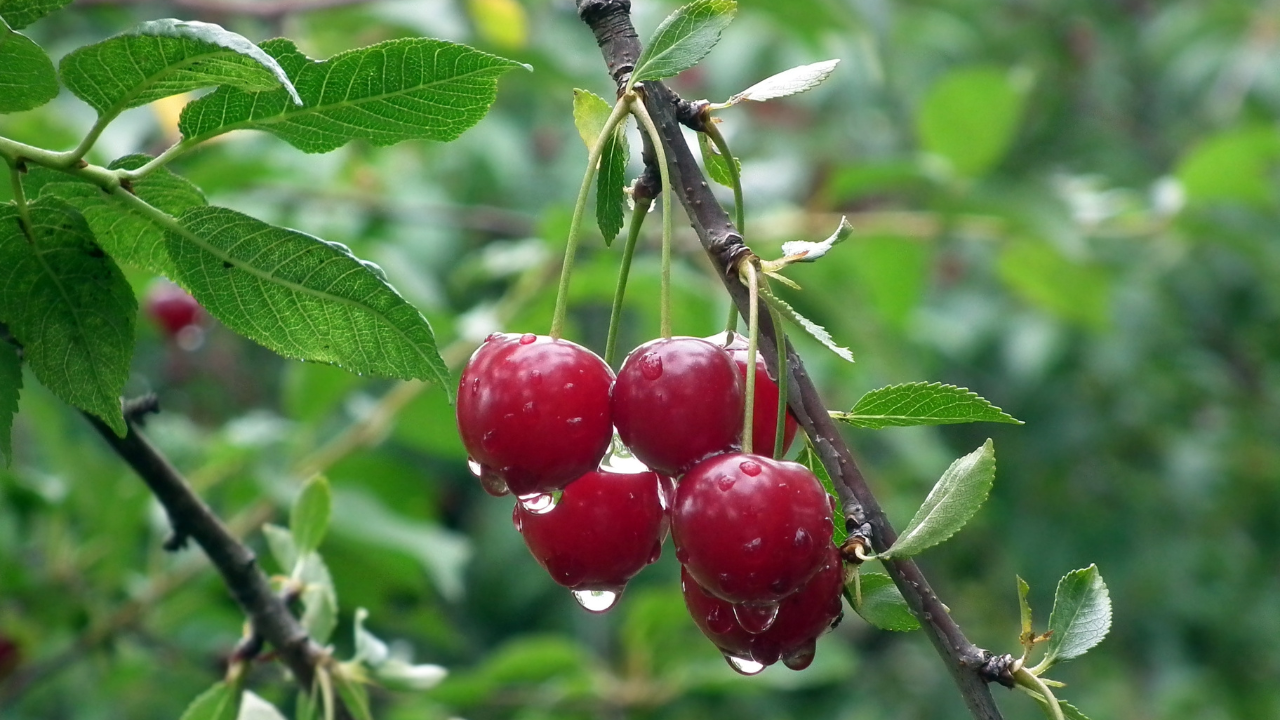Research Highlights:
Main Point 1: Tart cherries provide potent pain relief and anti-inflammatory effects, making them a natural alternative to traditional pain-relieving drugs.
Main Point 2: Emerging research indicates that tart cherries have the potential to reduce the risk of cancer, particularly colon cancer, through their unique anthocyanins.
Main Point 3: Tart cherries are a valuable source of melatonin and phenolic compounds, offering neuroprotection and potential benefits for brain health.
Additional Points: Nutritional content of tart cherries, including beta-carotene, vitamin C, and essential minerals, contributes to their overall health benefits.
Scientifically Reviewed by: Dr. Gary Gonzalez, MD, in August 2023.
Introduction
In an era where the quest for safe and effective natural remedies is on the rise, tart cherries have emerged as a nutritional powerhouse offering a plethora of health benefits. Beyond their delightful taste, tart cherries, enriched with unique anthocyanins, are gaining attention for their potential in pain relief, cancer defense, and neuroprotection. This article delves into the remarkable attributes of tart cherries and why they are a must-know for anyone interested in enhancing their well-being.
What You Need to Know
Point 1: Tart cherries are a natural and potent remedy for pain relief and inflammation, offering an alternative to conventional pharmaceuticals.
Point 2: Emerging scientific evidence suggests that the consumption of tart cherries may reduce the risk of colon cancer by inhibiting tumor growth.
Point 3: Tart cherries are a rich source of melatonin and phenolic compounds, potentially contributing to improved brain health and protection against neurodegenerative conditions.
Section 1: Unlocking the Power of Tart Cherries in Pain Relief and Inflammation Tart cherries have garnered significant attention due to their impressive ability to combat inflammation and alleviate pain. Recent studies have revealed that cherry anthocyanins possess anti-inflammatory properties that rival the effects of nonsteroidal anti-inflammatory drugs (NSAIDs). These anthocyanins counter oxidative stress following inflammatory insults, presenting a natural alternative to pharmaceutical options. Additionally, incorporating tart cherry juice into daily diets has been shown to reduce muscle pain resulting from intensive exercise, showcasing their potential to ease exercise-induced muscle damage. Furthermore, tart cherries may offer protection against gout, an inflammatory condition, by reducing urate levels and inflammation markers in the blood.
Subsection 1.1: The Role of Anthocyanins in Pain Relief Anthocyanins found in tart cherries are at the heart of their pain-relieving capabilities. These compounds have demonstrated their effectiveness in reducing painful inflammation, making tart cherries a promising natural solution for pain management.
Subsection 1.2: Tart Cherries and Exercise-Induced Muscle Pain Tart cherry juice, when integrated into daily dietary routines, has shown promise in reducing muscle pain following
strenuous exercise. This suggests that tart cherries may have a role in alleviating post-workout discomfort and aiding in faster recovery.
Section 2: Tart Cherries and Their Potential in Preventing Cancer Research suggests that tart cherries may play a pivotal role in reducing the risk of cancer, particularly colon cancer. When tart cherries, anthocyanins, or cyanidin (a breakdown product of anthocyanins) were included in the diet of mice genetically predisposed to colon cancer, there was a significant reduction in the number and size of colon tumors. Moreover, these compounds inhibited the growth of human colon cancer cells, shedding light on their potential therapeutic applications. Cherry fruit extract was also found to impede the growth of human colon and breast cancer cells, offering further support for their anti-cancer properties. These findings suggest that tart cherries may disrupt cancer cell growth mechanisms, potentially providing a natural means of cancer prevention.
Section 3: Tart Cherries: A Natural Source of Melatonin for Brain Health Tart cherries stand out as one of the few dietary sources of melatonin, a hormone vital for regulating the sleep-wake cycle and exhibiting potent antioxidant properties. The presence of melatonin in tart cherries offers potential benefits for brain health and neuroprotection. Additionally, the phenolic compounds, particularly anthocyanins, found in cherries have demonstrated neuroprotective activity. These compounds may help protect neuronal cells from oxidative stress, making tart cherries a potential ally against neurodegenerative conditions, including memory loss and senile dementia.
Summary
Tart cherries are a nutritional gem, offering natural solutions for pain relief, cancer prevention, and brain health. With their potent anthocyanins, these cherries have the ability to combat inflammation, reduce exercise-induced muscle pain, and potentially disrupt cancer cell growth. Moreover, their role as a source of melatonin and neuroprotective phenolic compounds underscores their importance in supporting brain health and defending against neurodegenerative conditions. Whether consumed fresh, frozen, or in various culinary forms, tart cherries have the potential to enhance overall well-being and contribute to a healthier, more vibrant life.
References:
- Yao LH, Jiang YM, Shi J, et al. Flavonoids in food and their health benefits. Plant Foods for Hum Nutr. 2004;59(3):113-122.
- Blando F, Gerardi C, Nicoletti I. Sour cherry (Prunus cerasus L) anthocyanins as ingredients for functional foods. J Biomed Biotechnol. 2004;2004(5):253-8. 3. Seeram NP, Momin RA, Nair MG, Bourquin LD. Cyclooxygenase inhibitory and antioxidant cyanidin glycosides in cherries and berries. Phytomedicine. 2001 Sep;8(5):362-9.
- Jacob RA, Spinozzi GM, Simon VA, et al. Consumption of cherries lowers plasma urate in healthy women. J Nutr. 2003 Jun;133(6):1826-9.










